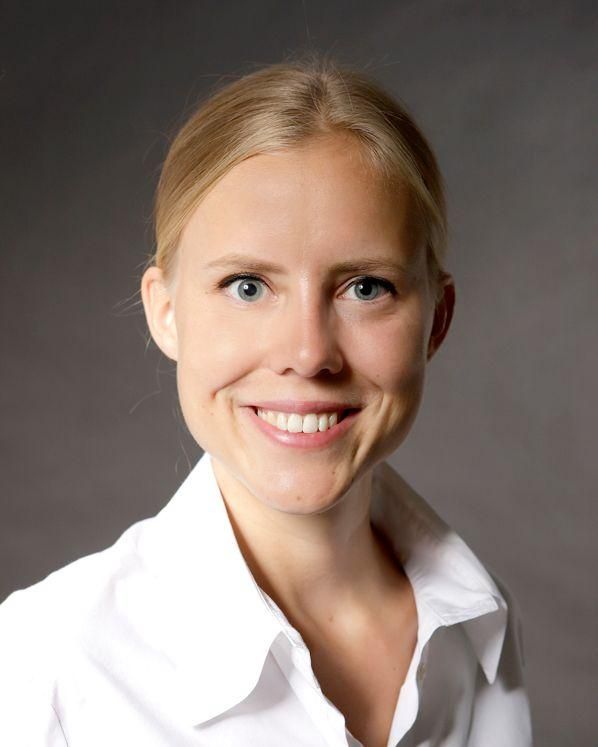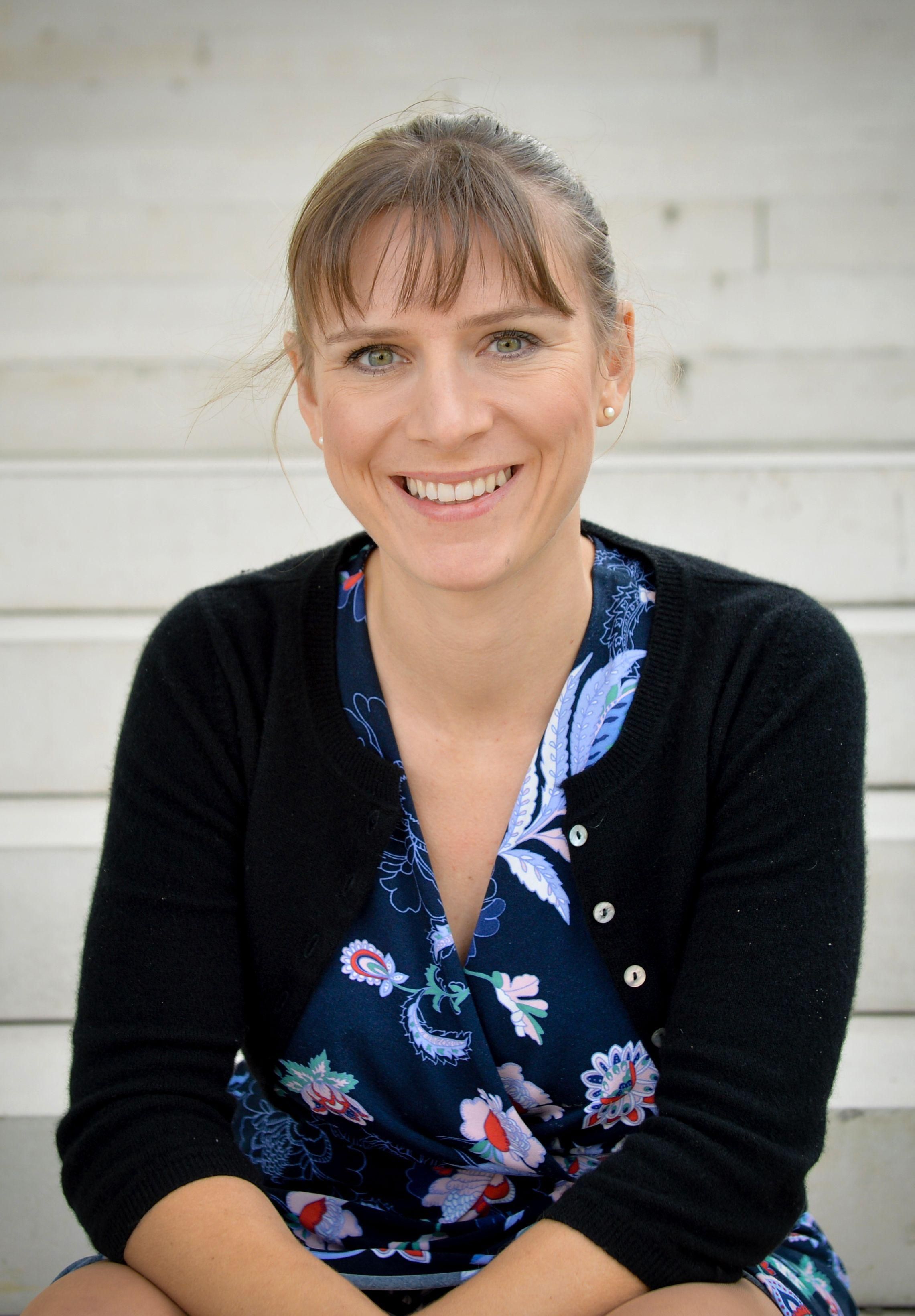Session details:
Speaker: Katharina Mücke and Kathrin Becker (Germany)
Date and time: Monday 10 June, 10:30-14:30
Location: Socrates B, Crowne Plaza Athens City Centre (Location on map)
Agenda:
10:30 – 11:30 Intro and presentation
11:30 – 12:30 Breakout groups
12:30 – 13:30 Lunch break
13:30 – 14:30 Group presentations and take-home message
Registration: You can register for this meeting during the main registration process. Places are limited to 90, on a first-come, first-served basis. The ticket is €27.50 incl. VAT and includes lunch.
Speaker Biography:
 Katharina Mücke graduated in Dentistry at Heinrich Heine University Düsseldorf and obtained her doctorate in 2023. In 2024, she finished her postgraduate training. She is a senior clinician at the Department of Orthodontics and Dentofacial Orthopedics, Charité Universitätsmedizin Berlin (Germany). Her work focuses on curriculum development, including e-learning initiatives, to enhance students' learning outcomes. Her research interests are interactive and ethnographic, exploring the "how" of effective pedagogy. She has been honored for her educational work with the ADEE Excellence in Dental Education Award, the DGZMK Kurt-Kaltenbach Dental Education Award, and the Teaching Award of the medical faculty at Heinrich-Heine University.
Katharina Mücke graduated in Dentistry at Heinrich Heine University Düsseldorf and obtained her doctorate in 2023. In 2024, she finished her postgraduate training. She is a senior clinician at the Department of Orthodontics and Dentofacial Orthopedics, Charité Universitätsmedizin Berlin (Germany). Her work focuses on curriculum development, including e-learning initiatives, to enhance students' learning outcomes. Her research interests are interactive and ethnographic, exploring the "how" of effective pedagogy. She has been honored for her educational work with the ADEE Excellence in Dental Education Award, the DGZMK Kurt-Kaltenbach Dental Education Award, and the Teaching Award of the medical faculty at Heinrich-Heine University.
 Kathrin Becker studied dentistry and computer science at the universities of Gottingen and Greifswald (Germany) and obtained her doctorate in 2014. After her research studies in Pittsburgh (USA, 2010) and Zurich (Switzerland, 2013), she completed her residency in orthodontics from 2014 to 2018 at the University of Düsseldorf (Germany). She habilitated in dental, oral, and maxillofacial medicine in 2019 at the same university. In 2023, she became full professor and chair of the Department of Orthodontics and Dentofacial Orthopedics at the Charité Universitätsmedizin Berlin (Germany). She is currently co-editor in chief of the Journals “Clinical and Experimental Dental Research” (Wiley & Sons Ltd.) and “Informationen aus Orthodontie & Kieferorthopädie” (Georg Thieme Verlag KG) and Editorial Board Member of Clinical Oral Investigations, Clinical Oral Implants Research and the Journal of Clinical Periodontology, as well as a member of the EAO junior committee and the Osteology Expert Council and the Osteology Scientific Review board. Her research interests include digital dentistry, skeletal anchorage, aligner therapy, 3D-dental imaging, and radiation protection. She has published more than 90 peer-reviewed articles (H-index: 22).
Kathrin Becker studied dentistry and computer science at the universities of Gottingen and Greifswald (Germany) and obtained her doctorate in 2014. After her research studies in Pittsburgh (USA, 2010) and Zurich (Switzerland, 2013), she completed her residency in orthodontics from 2014 to 2018 at the University of Düsseldorf (Germany). She habilitated in dental, oral, and maxillofacial medicine in 2019 at the same university. In 2023, she became full professor and chair of the Department of Orthodontics and Dentofacial Orthopedics at the Charité Universitätsmedizin Berlin (Germany). She is currently co-editor in chief of the Journals “Clinical and Experimental Dental Research” (Wiley & Sons Ltd.) and “Informationen aus Orthodontie & Kieferorthopädie” (Georg Thieme Verlag KG) and Editorial Board Member of Clinical Oral Investigations, Clinical Oral Implants Research and the Journal of Clinical Periodontology, as well as a member of the EAO junior committee and the Osteology Expert Council and the Osteology Scientific Review board. Her research interests include digital dentistry, skeletal anchorage, aligner therapy, 3D-dental imaging, and radiation protection. She has published more than 90 peer-reviewed articles (H-index: 22).
Abstract:
In 2006, the Network of Erasmus-Based European Orthodontic Postgraduate Programmes (NEBEOP) was established during the European Orthodontic Teachers’ Forum to strengthen and optimize the level of postgraduate training in orthodontics in Europe. Since its launch in 2008, several academic centers have become full or provisional members. Currently, each center is responsible for ensuring the quality of education and covering all contents. With the advent of digital technologies, strengthening the network by providing shared and high qualitative learning units from leading centers becomes possible. The session aims to present engaging blended learning methods and actively involve participants in the development of frameworks for selected digital NEBEOP web academy teaching content.
Structure:
Introducing interactivity: a preliminary interactive survey with an audio response system
- Presentations
- Topic 1: How much e-learning is effective? - An interactive introduction to blended learning methods in orthodontic undergraduate teaching.
- Topic 2: An update on student learning behavior in the post-COVID era
- Breakout groups develop frameworks for NEBEOP web academy teaching content
- Groups present their work and discuss possible scenarios for optimal teaching content in the NEBEOP web academy
Learning outcomes:
- Explore Cutting-Edge Strategies: discuss the latest trends and best practices in digital teaching content development.
- Foster Collaboration: Network with peers and elaborate ideas to foster a collaborative learning environment.
- Shape the Future of Education: Contribute to creating frameworks that will build the future of digital teaching in postgraduate orthodontic training.
